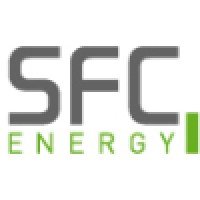Rolls-Royce successfully tests Mtu fuel cell system for blackout case and peak power

Rolls-Royce’s tests of its first mtu fuel cell demonstrator have proven that the system can provide uninterruptible power in the event of a blackout. Dr. Philippe Gorse, responsible for the development of the mtu fuel cell system at the business unit Power Systems of Rolls-Royce, said: “The 250-kilowatt system we built at our headquarters in Friedrichshafen and tested for about a year absolutely met our expectations. During the blackout simulation, the system immediately and consistently provided the requested power.”
The interaction of fuel cell modules, batteries and power grid was the focus of the tests to demonstrate the ability of an uninterruptible power supply for data centers. It is black-start capable, meaning it can be started without being connected to a power grid. Tests for peak load power delivery, i.e., when a highly fluctuating demand is met by the fuel cell system over a period of time in parallel with the power grid, were also successfully validated.
Fuel cells have a very high efficiency when generating electricity using hydrogen and oxygen. They emit no harmful emissions when operating on pure hydrogen, only water vapor, are quiet and require little maintenance, and cause no vibration.
Dr. Peter Riegger explained: “The biggest plus point comes when regeneratively produced hydrogen is used as fuel. Then the emission of pollutants and climate-damaging gases together can be reduced to zero. In this way, fuel cells have enormous potential to become a key technology building block for the decarbonization of propulsion and energy systems.”
As part of the publicly funded Enerport II project, Duisport, one of the world’s largest inland ports, will commission a new terminal with a hydrogen-based supply network in 2024. In the future, most of the electrical and thermal energy required in the port will be generated directly on-site from hydrogen in a CO2-neutral manner.
This will be ensured by two mtu fuel cell systems and two combined heat and power plants with mtu Series 4000 hydrogen engines. This project is supported by the German Federal Ministry of Economics and Climate Protection.
As part of its sustainability program, Rolls-Royce is focusing the product portfolio of its Power Systems business unit on sustainable fuels and new technologies that can further reduce greenhouse gas emissions.
